
Find Help
More Items From Ergsy search
-

What are the symptoms of Type 2 Diabetes?
Relevance: 100%
-
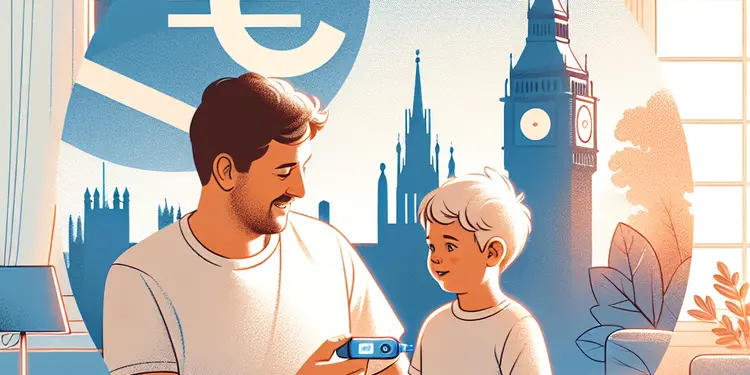
Are there any symptoms of type 1 diabetes I should watch for in my child?
Relevance: 86%
-
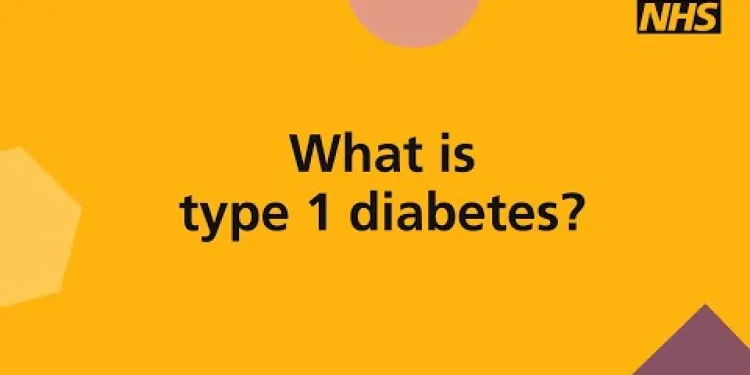
What is type 1 diabetes?
Relevance: 83%
-
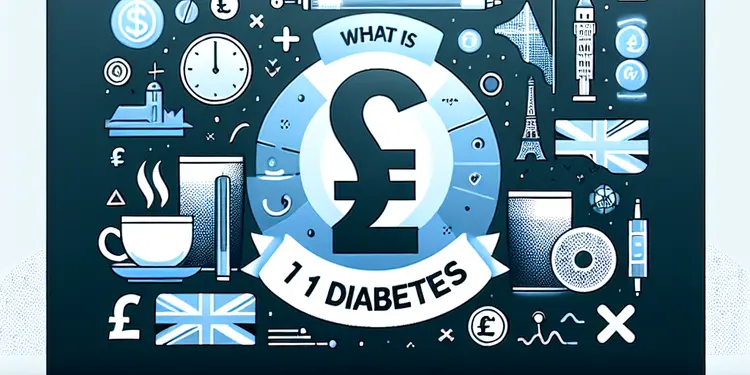
What is type 1 diabetes?
Relevance: 83%
-

Type 1 Diabetes supporting adults to manage Type 1 diabetes
Relevance: 81%
-
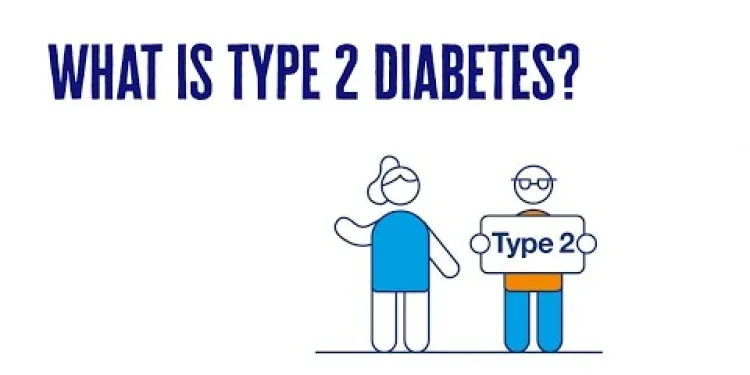
What Is Type 2 Diabetes? | 2 Minute Guide | Diabetes UK
Relevance: 80%
-

What is the difference between type 1 and type 2 diabetes?
Relevance: 80%
-
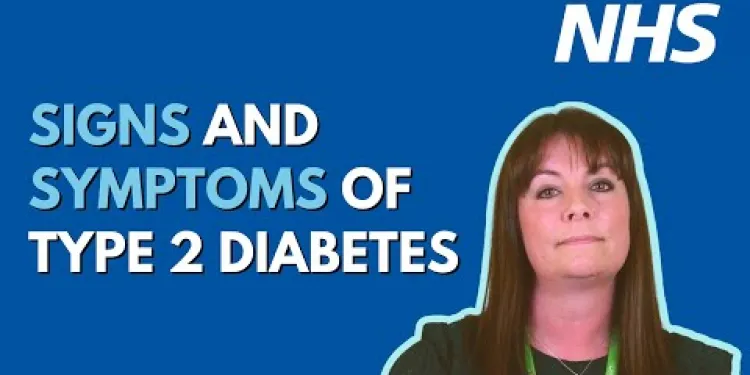
Type 2 diabetes - common signs and symptoms UHL NHS Trust
Relevance: 80%
-

How is Type 2 Diabetes diagnosed?
Relevance: 78%
-

Is Type 2 Diabetes hereditary?
Relevance: 77%
-
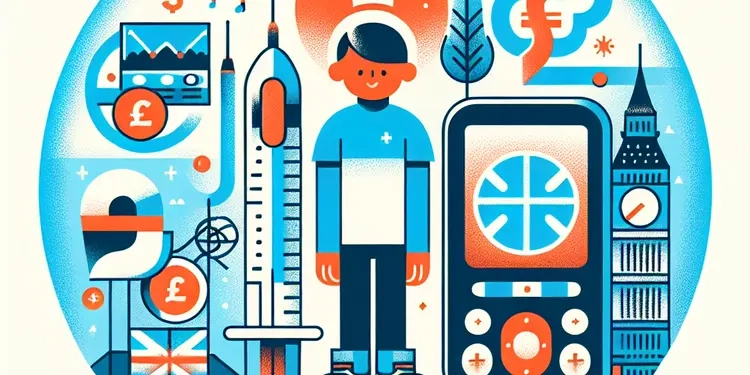
Should I screen my child for type 1 diabetes?
Relevance: 74%
-
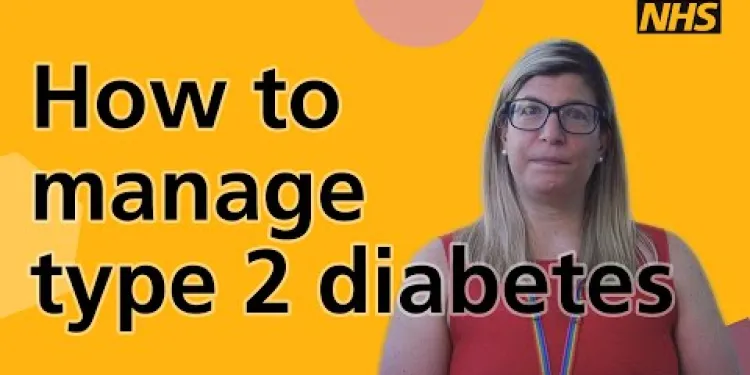
How to manage type 2 diabetes
Relevance: 74%
-

Is Ozempic suitable for type 1 diabetes?
Relevance: 73%
-
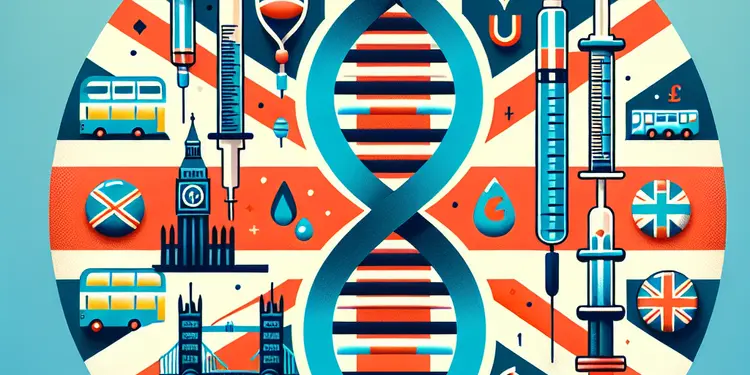
Is there a genetic predisposition to type 1 diabetes?
Relevance: 73%
-

What causes Type 2 Diabetes?
Relevance: 73%
-

Can Type 2 Diabetes go away?
Relevance: 73%
-

Can Type 2 Diabetes be prevented?
Relevance: 72%
-

What complications are associated with Type 2 Diabetes?
Relevance: 72%
-
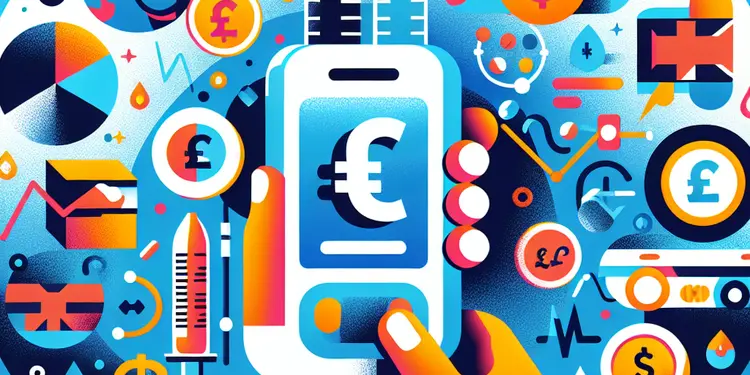
What does screening for type 1 diabetes involve?
Relevance: 72%
-

Can stress affect my Type 2 Diabetes?
Relevance: 70%
-

Can Mounjaro be used in type 1 diabetes?
Relevance: 70%
-
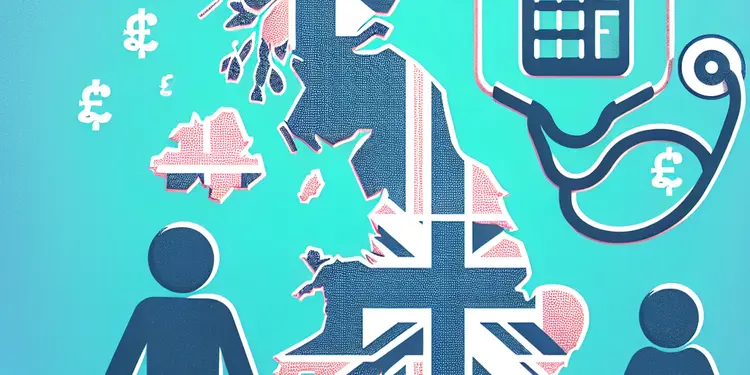
Where can I have my child screened for type 1 diabetes?
Relevance: 70%
-

How is Type 2 Diabetes treated?
Relevance: 69%
-

What is the role of insulin in Type 2 Diabetes?
Relevance: 69%
-
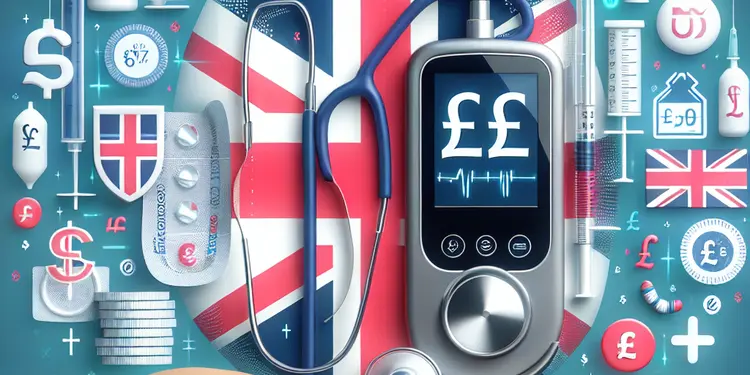
What are the limitations of type 1 diabetes screening?
Relevance: 69%
-
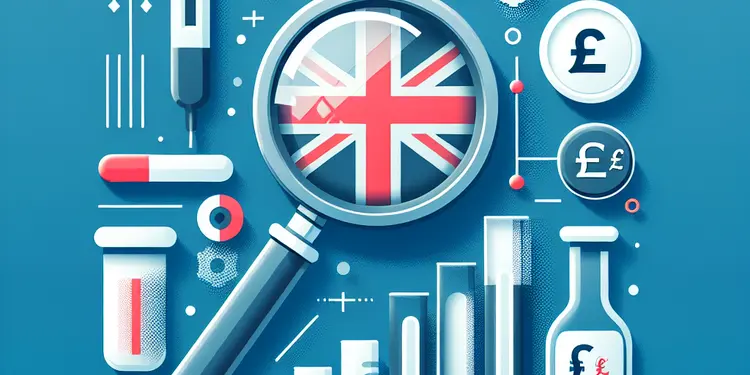
How accurate are the tests for predicting type 1 diabetes?
Relevance: 68%
-
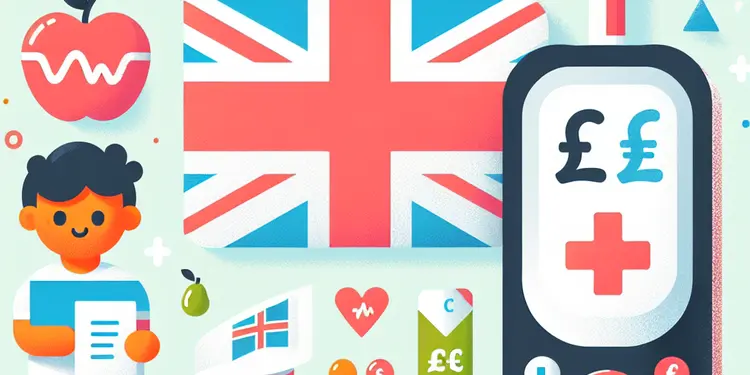
At what age should my child be screened for type 1 diabetes?
Relevance: 68%
-
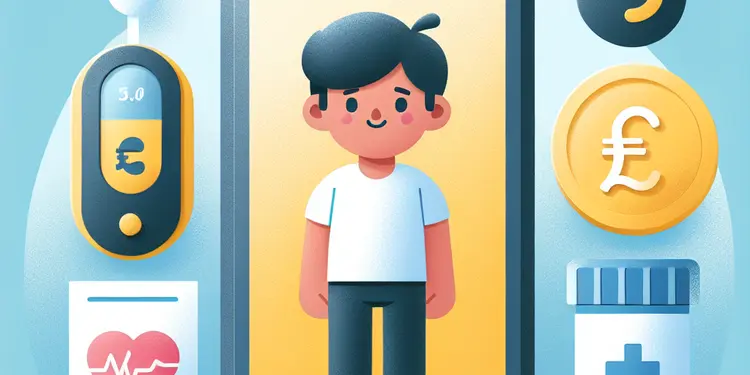
Why should I consider screening my child for type 1 diabetes?
Relevance: 68%
-
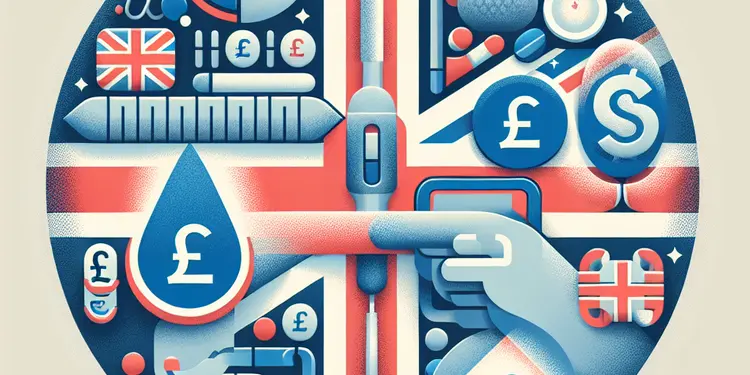
Should siblings of a child with type 1 diabetes also be screened?
Relevance: 68%
-

Does insurance cover type 1 diabetes screening?
Relevance: 67%
-
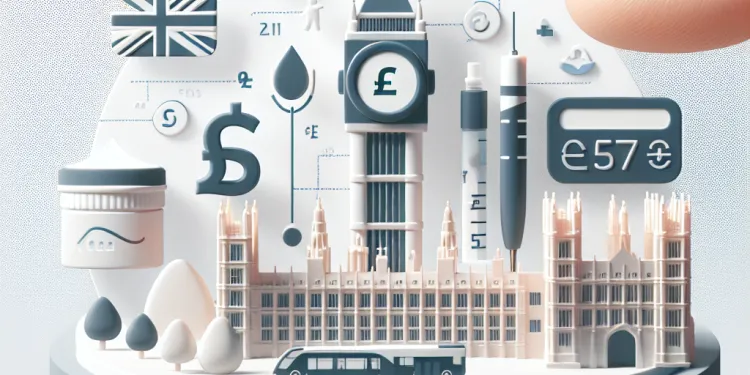
Is Wegovy used for type 2 diabetes management?
Relevance: 67%
-
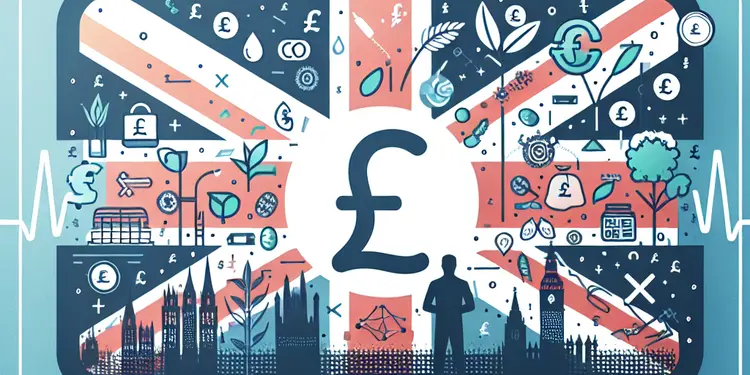
Can environmental factors contribute to type 1 diabetes?
Relevance: 66%
-
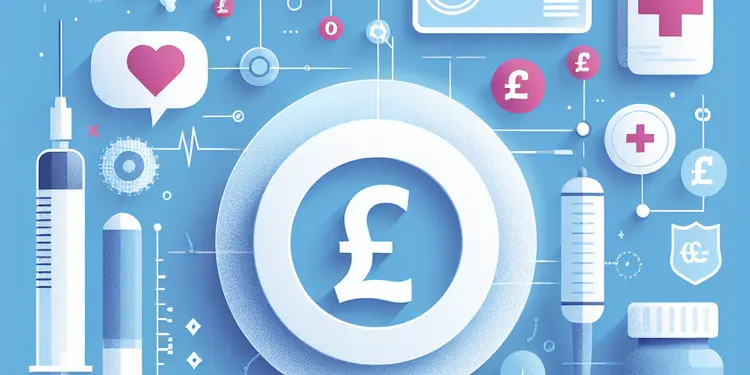
Are there any clinical trials for preventing type 1 diabetes?
Relevance: 66%
-
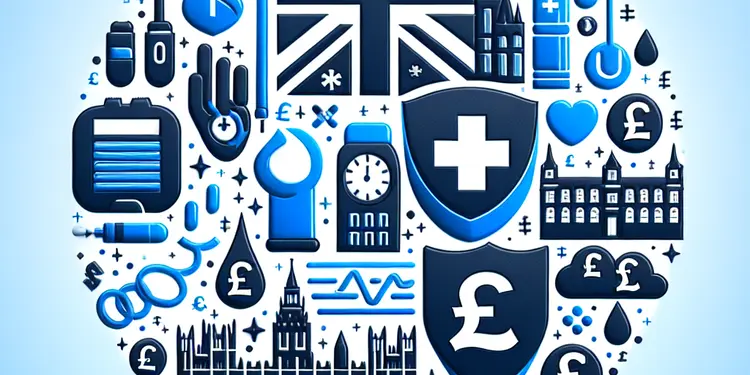
What are the benefits of early detection of type 1 diabetes?
Relevance: 65%
-
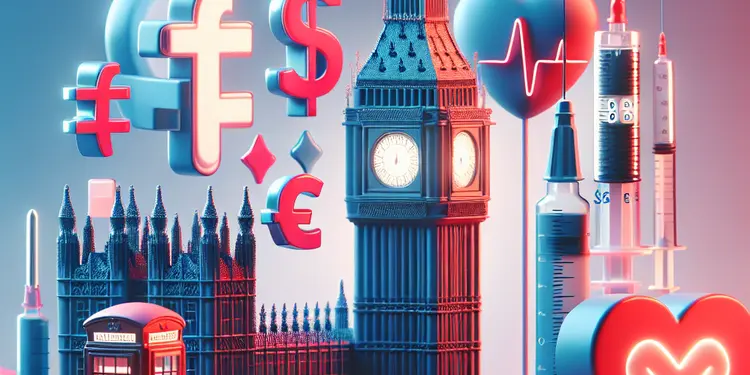
Are heart attack symptoms different for people with diabetes?
Relevance: 65%
-
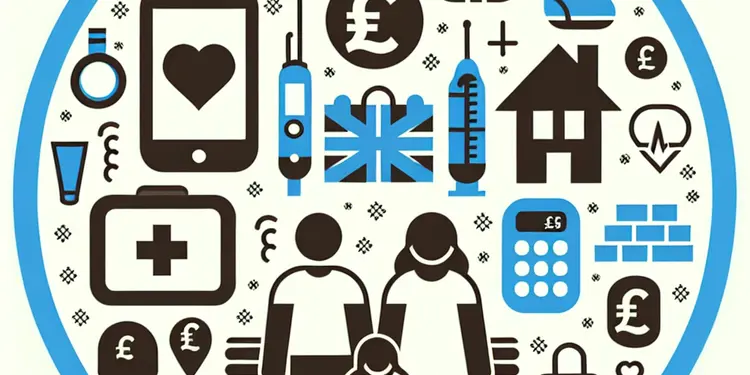
What support is available for families dealing with type 1 diabetes?
Relevance: 65%
-

Where can I find support for managing Type 2 Diabetes in the UK?
Relevance: 64%
-

NHS Diabetes Prevention Programme; Preventing Type 2 and improving outcomes for people with diabetes
Relevance: 63%
-
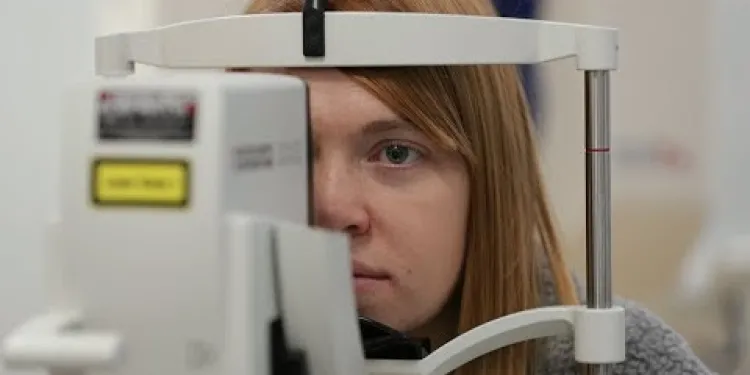
Patient voices in type one diabetes - I would have done things differently.
Relevance: 61%
-
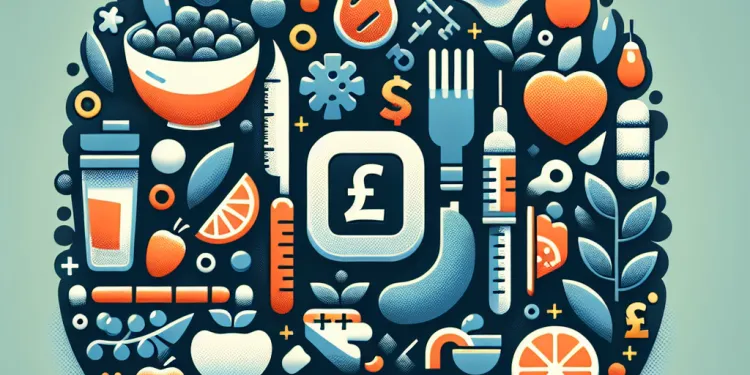
What can I eat if I have Type 2 Diabetes?
Relevance: 59%
Understanding the Symptoms of Type 2 Diabetes
Type 2 diabetes is a chronic condition that affects the way the body processes blood sugar (glucose). It is the most common form of diabetes and often develops over a number of years. Recognizing the symptoms early can aid in proper management and prevention of complications. Below are some of the key symptoms associated with Type 2 diabetes.
Frequent Urination
One of the hallmark symptoms of Type 2 diabetes is the need to urinate frequently. This occurs because excess glucose in the blood is excreted by the kidneys, resulting in increased urine production. If you find yourself visiting the bathroom more often, especially at night, it might be worth discussing with a healthcare professional.
Increased Thirst
With frequent urination comes increased thirst. Your body loses significant amounts of water through urination as it tries to expel excess sugar. To compensate, you may feel the need to drink more fluids, leading to a cycle of drinking and urinating.
Feeling Hungry
Uncontrolled diabetes can result in a lack of energy in cells, as glucose cannot efficiently enter them due to insulin resistance. This may lead to increased hunger, as your body attempts to get more energy. If you notice a sudden increase in appetite that isn't aligned with your typical eating habits, it might be a symptom to monitor.
Fatigue
Feeling extremely tired or fatigued is another symptom of Type 2 diabetes. This occurs because your body cannot use glucose properly for energy, leading to exhaustion. This symptom is often overlooked because fatigue can be attributed to various other factors, but in combination with others, it may suggest a glucose metabolism issue.
Blurred Vision
High blood sugar levels can cause fluid to be pulled from your body tissues, including the lenses of your eyes, affecting your ability to focus and leading to blurred vision. If left unmanaged, it can result in more permanent vision problems or even blindness.
Slow Healing of Wounds
Type 2 diabetes can lead to impaired blood circulation and nervous function, making it difficult for your body to heal wounds efficiently. If you notice that cuts or bruises take an unusually long time to heal, it could be a symptom worthy of medical evaluation.
Numbness or Tingling in Extremities
Elevated blood sugar levels can damage nerves over time, a condition known as neuropathy. This often starts as tingling or numbness in the hands and feet. If you experience persistent numbness or tingling, it is important to seek medical attention to potentially mitigate long-term damage.
Recognizing these symptoms early and seeking professional advice is crucial in managing Type 2 diabetes effectively. If you suspect you may be experiencing symptoms of diabetes, it is advised to consult with a healthcare provider for a proper diagnosis and treatment plan.
Knowing the Signs of Type 2 Diabetes
Type 2 diabetes is a long-term illness that changes how your body uses sugar in your blood. It is the most common type of diabetes. It can take years to develop. Knowing the signs early can help you get the right care and avoid problems. Here are some important signs of Type 2 diabetes:
Needing to Pee Often
If you have Type 2 diabetes, you might need to pee a lot. This is because your body tries to get rid of extra sugar in your blood by making more pee. If you find you run to the bathroom a lot, especially at night, you should talk to a doctor.
Feeling Very Thirsty
Peeing a lot can make you very thirsty. When your body loses water from peeing, you feel thirsty and drink more. This makes you pee even more. It's a cycle.
Feeling Hungry
If you have diabetes, your body might not get enough energy from food because sugar can't get into your cells properly. This can make you feel very hungry. If you're suddenly much hungrier than usual, it could be a sign.
Feeling Tired
Feeling really tired all the time is another sign of Type 2 diabetes. When your body can't use sugar for energy, you feel worn out. Lots of things can make you tired, but if it's together with other signs, it might be about your blood sugar.
Blurry Vision
High sugar levels in your blood can take water from parts of your body, like your eyes. This makes it hard to see clearly. If it is not treated, it could lead to big eye problems.
Cuts Healing Slowly
With Type 2 diabetes, blood moves slowly through your body. This means cuts heal slowly. If you have cuts or bruises that take a long time to get better, it's worth asking a doctor.
Numbness or Tingling in Hands and Feet
High blood sugar can harm your nerves over time. This can feel like tingling or numbness in your hands and feet. If you feel this way often, you should see a doctor to try to stop any damage.
Spotting these signs early and getting advice from a doctor is important. If you think you might have diabetes signs, talk to a healthcare provider for a proper check-up and plan.
Frequently Asked Questions
What are the common symptoms of Type 2 Diabetes?
Common symptoms include increased thirst, frequent urination, extreme hunger, unintended weight loss, fatigue, blurred vision, slow-healing sores, and frequent infections.
Can Type 2 Diabetes cause weight changes?
Yes, unexplained weight loss can occur with Type 2 Diabetes despite normal or increased appetite and food consumption.
Is increased thirst a sign of Type 2 Diabetes?
Yes, increased thirst (polydipsia) is a common symptom of Type 2 Diabetes due to high blood sugar levels causing dehydration.
Does Type 2 Diabetes affect vision?
Yes, blurred vision is a possible symptom as high blood sugar levels can affect the shape of the lens in the eye.
How does Type 2 Diabetes affect energy levels?
People with Type 2 Diabetes often experience fatigue or tiredness due to the body's inability to effectively use glucose for energy.
Are slow-healing sores a symptom of Type 2 Diabetes?
Yes, high blood sugar can lead to poor blood circulation and nerve damage, resulting in slow-healing sores or cuts.
Can Type 2 Diabetes cause frequent urination?
Yes, frequent urination (polyuria) is a symptom of Type 2 Diabetes as the body tries to get rid of excess glucose through urine.
What infections are common with Type 2 Diabetes?
People with Type 2 Diabetes may experience frequent infections such as skin infections, bladder infections, and yeast infections due to high blood sugar levels.
Is numbness or tingling a symptom of Type 2 Diabetes?
Yes, nerve damage caused by prolonged high blood sugar levels can lead to numbness or tingling, particularly in the hands and feet.
Are there any skin changes associated with Type 2 Diabetes?
Yes, people with Type 2 Diabetes may develop dark, velvety patches of skin called acanthosis nigricans, commonly found in skin folds.
Can Type 2 Diabetes affect sleep?
Yes, people with Type 2 Diabetes may experience sleep issues such as frequent awakenings at night to urinate or conditions like sleep apnea.
Does Type 2 Diabetes cause appetite changes?
Yes, people may experience increased hunger (polyphagia) as the body's cells are not receiving enough glucose for energy.
Can Type 2 Diabetes lead to mood changes?
Yes, fluctuations in blood sugar levels can affect mood and mental health, leading to symptoms such as irritability or depression.
Are headaches a symptom of Type 2 Diabetes?
Yes, headaches can occur due to fluctuations in blood sugar levels as well as dehydration from increased urination.
How does Type 2 Diabetes affect oral health?
High blood sugar levels can increase the risk of gum disease and infections in the mouth.
Can Type 2 Diabetes cause changes in libido or sexual function?
Yes, due to nerve damage and poor blood flow, individuals may experience changes in sexual function or decreased libido.
How does Type 2 Diabetes affect the ability to concentrate?
Fluctuations in blood sugar levels can affect cognitive function, leading to difficulties concentrating.
Are there symptoms of Type 2 Diabetes specific to women?
Women with Type 2 Diabetes may experience more frequent urinary tract infections and yeast infections due to high glucose levels.
Are there symptoms of Type 2 Diabetes specific to men?
Men with Type 2 Diabetes might experience erectile dysfunction due to reduced blood flow and nerve damage.
Can Type 2 Diabetes be asymptomatic?
Yes, some people with Type 2 Diabetes may not show obvious symptoms, especially in the early stages, which is why regular screening is important.
What signs show you might have Type 2 Diabetes?
Here are signs that you might have Type 2 Diabetes:
- Feeling very thirsty.
- Needing to pee a lot.
- Feeling very tired.
- Blurry eyesight.
- Cuts or bruises that heal slowly.
If you need help understanding the signs, ask a friend or family member. You can also use pictures or videos to learn more. It's good to talk to a doctor if you notice these signs.
Here are some signs that something might be wrong:
- You feel very thirsty often.
- You need to pee a lot.
- You feel really hungry all the time.
- You lose weight without trying.
- You feel tired all the time.
- You can’t see clearly.
- Cuts or sores take a long time to heal.
- You get sick a lot.
Using simple tools like icons or pictures can help remind you of these symptoms. Keeping a diary of how you feel each day can also be useful.
Can Type 2 Diabetes make you gain or lose weight?
Type 2 Diabetes can change your weight. You might gain weight or lose weight.
Here are some things that can help:
- Talk to a doctor or nurse. They can help you understand your weight changes.
- Eat healthy food. Fruits, vegetables, and whole grains are good choices.
- Do some exercise. Walking or stretching can be nice and easy ways to start.
- Ask family or friends for support. They can help you stay on track.
Yes, you can lose weight for no clear reason if you have Type 2 Diabetes, even if you are eating the same or more food than usual.
Does being very thirsty mean you might have Type 2 Diabetes?
Yes, feeling very thirsty is a common sign of Type 2 Diabetes. This happens because too much sugar in the blood can make you dehydrated.
Can Type 2 Diabetes hurt your eyes?
Type 2 Diabetes can make it harder to see. It can hurt your eyes. It is important to tell a doctor if your vision changes.
Here are some tips to help:
- Visit your eye doctor: They can check your eyes and help you.
- Eat healthy foods: Good food can help your body and eyes.
- Check blood sugar: Make sure your sugar is not too high or too low.
- Get help from tools: Use glasses or a magnifying glass to see better.
Yes, blurry vision can happen. This is because too much sugar in the blood can change the shape of the lens in the eye.
How does Type 2 Diabetes make you feel tired?
Type 2 Diabetes can make you feel very tired. This is because your body does not use sugar for energy in the right way.
When you have Type 2 Diabetes, your body has trouble using a thing called insulin. Insulin helps turn sugar from food into energy.
If insulin does not work well, sugar stays in the blood instead of giving you energy. This can make you feel tired.
Here are some tips to help:
- Eat healthy meals. This helps keep your energy steady.
- Do light exercises like walking. This can help you feel less tired.
- Check your blood sugar levels. This helps you know how your body is doing.
- Talk to a doctor if you feel very tired a lot.
Using apps on your phone can help you track your meals and exercise. A family member or friend can also help remind you to eat well and exercise.
People with Type 2 Diabetes often feel very tired because their bodies can't use sugar for energy properly.
Do cuts and sores heal slowly if you have Type 2 Diabetes?
When you have Type 2 Diabetes, your body has trouble handling sugar. This can make cuts and sores take longer to heal.
If you notice that your cuts and sores are healing slowly, it is a good idea to visit a doctor. They can help you.
Reading tip: Try using audiobooks or apps that read text out loud. This can help you understand better.
High blood sugar is when you have too much sugar in your blood. This can make your blood not move well in your body. It can also hurt your nerves, which are like tiny messengers in your body. If you get a cut or a sore, it might take a long time to get better because of this.
Using a calendar or an app can help remind you to check your blood sugar often. Talking to someone about how you feel can also help.
Does Type 2 Diabetes make you pee a lot?
Yes, needing to pee a lot is a sign of Type 2 Diabetes. This happens because the body wants to get rid of extra sugar by peeing it out.
What sicknesses can happen often with Type 2 Diabetes?
People with Type 2 Diabetes can get sick more easily. Here are some common sicknesses they might get:
- Urinary Tract Infections (UTIs) – People might feel pain when peeing or need to pee often.
- Skin Infections – The skin can get red, itchy, or swollen.
- Yeast Infections – These can happen in warm, moist areas of the body.
- Foot Infections – Cuts or sores on the feet might not heal well.
To help stay healthy, it’s good to wash hands often, keep skin clean and dry, and check feet every day for cuts or sores.
If you often feel unwell, talk to a doctor. They can help you feel better.
People with Type 2 Diabetes can get sick more often. They might get skin infections, bladder infections, and yeast infections. This happens because they have too much sugar in their blood.
Can Type 2 Diabetes Make You Feel Numb or Tingly?
Some people with Type 2 Diabetes feel numb or tingly. This is when you lose feeling in parts of your body, or they feel like pins and needles.
If you have Type 2 Diabetes, talk to your doctor about how you feel.
You can try these tips to help you:
- Write down your symptoms to remember them.
- Tell someone you trust about how you feel.
Yes, high sugar levels in the blood for a long time can hurt nerves. This can make your hands and feet feel numb or tingly.
Can Type 2 Diabetes change your skin?
Yes, people with Type 2 Diabetes can get dark and soft skin. This is called acanthosis nigricans. It often happens in the folds of the skin.
Can Type 2 Diabetes change how you sleep?
Yes, people with Type 2 Diabetes might have trouble sleeping. They might wake up a lot at night to go to the toilet. They could also have a problem called sleep apnea, which affects breathing during sleep.
Can Type 2 Diabetes change how hungry you feel?
Yes, sometimes people feel very hungry. This can happen because their cells do not get enough sugar, which they need for energy.
Can Type 2 Diabetes change how you feel?
Yes, it can. Having Type 2 Diabetes might make you feel different sometimes. You might feel sad, worried, or grumpy.
Here are some ways to help:
- Talk to a friend or family member about your feelings.
- Ask your doctor for advice.
- Try to do activities you enjoy to feel better.
Yes, changes in blood sugar can change how you feel. It might make you grumpy or sad.
Can you get headaches if you have Type 2 Diabetes?
People who have Type 2 Diabetes might have headaches.
If you have a headache a lot, tell a doctor.
Here are some things that might help:
- Drink water
- Eat healthy food
- Rest in a quiet place
- Ask someone for help
Yes, you can get headaches if your blood sugar goes up and down. You can also get headaches if you lose too much water from peeing a lot.
How does Type 2 Diabetes affect mouth health?
Type 2 Diabetes can make mouth health worse. When you have Type 2 Diabetes, your body has trouble using sugar. This can cause extra sugar in your blood.
Extra sugar can lead to more germs in your mouth. These germs can hurt your teeth and gums.
If you have Type 2 Diabetes, it might take longer for cuts in your mouth to heal.
To help keep your mouth healthy, brush your teeth twice a day, floss regularly, and visit the dentist.
Support tools like pictures and audio guides might help you understand this better.
Having too much sugar in your blood can make it easier to get sore gums or infections in your mouth.
Can Type 2 Diabetes change your interest in sex?
Yes, because of nerve damage and problems with blood flow, people might have changes in how they feel about sex or might not want sex as much.
How does Type 2 Diabetes affect focusing?
Type 2 Diabetes can make it hard to focus. This happens because blood sugar levels can be too high or too low. When sugar levels are not right, it can make you feel tired or confused. It is important to keep sugar levels steady.
Here are some tips to help you:
- Eat healthy meals at regular times.
- Check your blood sugar levels often.
- Exercise regularly to keep your body strong.
- Ask a doctor or nurse for help if you feel different.
Changes in blood sugar can make it hard to think clearly. This can make it tough to focus.
Do women get special signs of Type 2 Diabetes?
Women with Type 2 Diabetes can get more infections like bladder infections and yeast infections. This is because their sugar levels are high.
What signs of Type 2 Diabetes should men watch out for?
Type 2 Diabetes is when your body has trouble using sugar the right way. Here are some signs men should look for:
- Feeling very thirsty
- Going to the bathroom a lot
- Feeling tired all the time
- Blurry eyesight
- Cuts that heal slowly
- Gaining weight around your tummy
- Trouble getting or keeping an erection
If you have any of these signs, it's a good idea to talk to a doctor. They can help you stay healthy.
To help you understand better, you can:
- Use pictures and drawings
- Ask someone you trust to explain it
- Use simple apps or videos for learning
Men who have Type 2 Diabetes might have trouble with erections. This can happen because of less blood flow and damage to nerves.
Does Type 2 Diabetes have no symptoms?
Some people with Type 2 Diabetes do not feel sick at first. This is why it is good to have regular check-ups with the doctor.
Useful Links
This website offers general information and is not a substitute for professional advice.
Always seek guidance from qualified professionals.
If you have any medical concerns or need urgent help, contact a healthcare professional or emergency services immediately.
Some of this content was generated with AI assistance. We’ve done our best to keep it accurate, helpful, and human-friendly.
- Ergsy carfully checks the information in the videos we provide here.
- Videos shown by Youtube after a video has completed, have NOT been reviewed by ERGSY.
- To view, click the arrow in centre of video.
- Most of the videos you find here will have subtitles and/or closed captions available.
- You may need to turn these on, and choose your preferred language.
- Go to the video you'd like to watch.
- If closed captions (CC) are available, settings will be visible on the bottom right of the video player.
- To turn on Captions, click settings .
- To turn off Captions, click settings again.
More Items From Ergsy search
-

What are the symptoms of Type 2 Diabetes?
Relevance: 100%
-

Are there any symptoms of type 1 diabetes I should watch for in my child?
Relevance: 86%
-

What is type 1 diabetes?
Relevance: 83%
-

What is type 1 diabetes?
Relevance: 83%
-

Type 1 Diabetes supporting adults to manage Type 1 diabetes
Relevance: 81%
-

What Is Type 2 Diabetes? | 2 Minute Guide | Diabetes UK
Relevance: 80%
-

What is the difference between type 1 and type 2 diabetes?
Relevance: 80%
-

Type 2 diabetes - common signs and symptoms UHL NHS Trust
Relevance: 80%
-

How is Type 2 Diabetes diagnosed?
Relevance: 78%
-

Is Type 2 Diabetes hereditary?
Relevance: 77%
-

Should I screen my child for type 1 diabetes?
Relevance: 74%
-

How to manage type 2 diabetes
Relevance: 74%
-

Is Ozempic suitable for type 1 diabetes?
Relevance: 73%
-

Is there a genetic predisposition to type 1 diabetes?
Relevance: 73%
-

What causes Type 2 Diabetes?
Relevance: 73%
-

Can Type 2 Diabetes go away?
Relevance: 73%
-

Can Type 2 Diabetes be prevented?
Relevance: 72%
-

What complications are associated with Type 2 Diabetes?
Relevance: 72%
-

What does screening for type 1 diabetes involve?
Relevance: 72%
-

Can stress affect my Type 2 Diabetes?
Relevance: 70%
-

Can Mounjaro be used in type 1 diabetes?
Relevance: 70%
-

Where can I have my child screened for type 1 diabetes?
Relevance: 70%
-

How is Type 2 Diabetes treated?
Relevance: 69%
-

What is the role of insulin in Type 2 Diabetes?
Relevance: 69%
-

What are the limitations of type 1 diabetes screening?
Relevance: 69%
-

How accurate are the tests for predicting type 1 diabetes?
Relevance: 68%
-

At what age should my child be screened for type 1 diabetes?
Relevance: 68%
-

Why should I consider screening my child for type 1 diabetes?
Relevance: 68%
-

Should siblings of a child with type 1 diabetes also be screened?
Relevance: 68%
-

Does insurance cover type 1 diabetes screening?
Relevance: 67%
-

Is Wegovy used for type 2 diabetes management?
Relevance: 67%
-

Can environmental factors contribute to type 1 diabetes?
Relevance: 66%
-

Are there any clinical trials for preventing type 1 diabetes?
Relevance: 66%
-

What are the benefits of early detection of type 1 diabetes?
Relevance: 65%
-

Are heart attack symptoms different for people with diabetes?
Relevance: 65%
-

What support is available for families dealing with type 1 diabetes?
Relevance: 65%
-

Where can I find support for managing Type 2 Diabetes in the UK?
Relevance: 64%
-

NHS Diabetes Prevention Programme; Preventing Type 2 and improving outcomes for people with diabetes
Relevance: 63%
-

Patient voices in type one diabetes - I would have done things differently.
Relevance: 61%
-

What can I eat if I have Type 2 Diabetes?
Relevance: 59%


